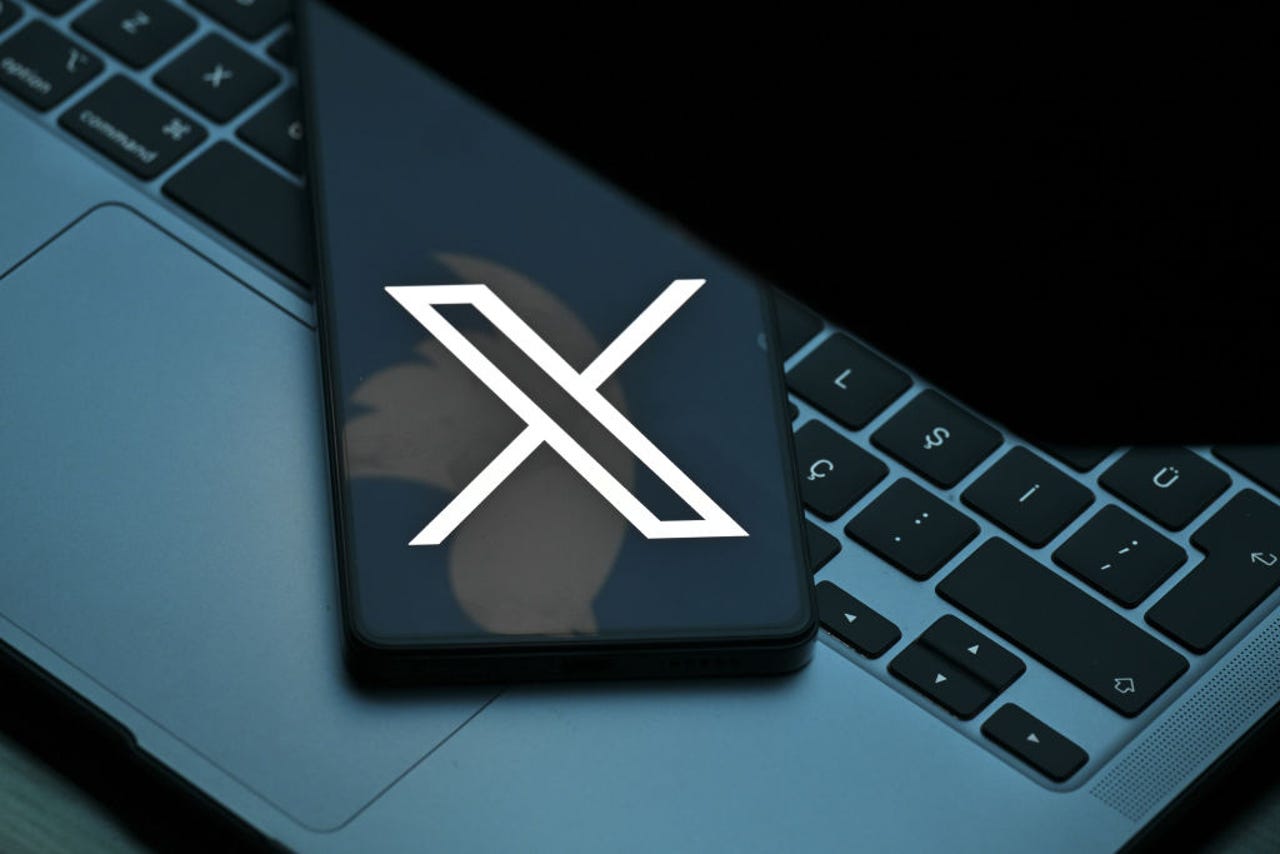Musk extols Twitter's new X name, but analysts are dubious


Last weekend, Elon Musk performed his own version of "Bye Bye, Birdie." In yet another "out-of-the-blue" move that should have surprised no one but still created a stir, Musk revealed that Twitter would be renamed and rebranded to X. In short order, the domain name X.com redirected to Twitter, the familiar blue bird logo was replaced with a simple black X, and Twitter's headquarters lit up with a giant X.
Twitter users quickly chimed in with a slew of comments, some positive but many negative. Concerns cropped up that the Twitter people knew and sometimes loved would go the way of the dodo, replaced by some mysterious X factor.
Also: The best Twitter alternatives
Several users questioned the wisdom of such a name change on the company and its brand. Others poked fun at the clumsiness of a name like X (what do you now call tweets?). And still, others saw this as just another kooky move from the mind of Musk.
"There's probably a bit of brand value in the fact that a significant % of the world's population knows what a 'tweet' is," posted one person. "Pay $44 Billion for a company to erase the entire brand in a matter of months… this is the smartest business guy in the world?" said another. "Why replace the chipper, identifiable Twitter symbol with something that reeks of negation and bleakness such as a black 'X'?" asked a third person.
By Monday, Musk chimed in with a tweet that attempted to explain and justify the name change. Contending that Twitter was bought by X Corp to ensure free speech and to accelerate X, the everything app, Musk claimed that this is more than just company renaming itself but doing the same thing.
"The Twitter name made sense when it was just 140 character messages going back and forth -- like birds tweeting -- but now you can post almost anything, including several hours of video," Musk wrote. "In the months to come, we will add comprehensive communications and the ability to conduct your entire financial world. The Twitter name does not make sense in that context, so we must bid adieu to the bird."
Also: 5 reasons to try Twitter rival Bluesky
The takeaway here is that Musk sees more in store for Twitter, or X. No longer satisfied to be just a simple service for sharing news, views, and information, the X of the future will be a conglomerate -- part social network, part payment platform, part financial provider.
In her own tweet commenting on the power of X, CEO Linda Yaccarino cited X as "the future state of unlimited interactivity - centered in audio, video, messaging, payments/banking -- creating a global marketplace for ideas, goods, services, and opportunities. Powered by AI, X will connect us all in ways we're just beginning to imagine."
But the last few words in Yaccarino's tweet point to the problem. Right now, X as a global marketplace is just in the imagining stage. Turning that vision into a reality will take time, effort, and perseverance. And so far, Musk has shown himself to be an irascible and often chaotic owner, more interested in tweeting outrageous or controversial comments than in steering the ship.
In the meantime, analysts and experts have questioned the impact of the name change. Many have argued that the move destroys the Twitter brand and recognition that made the platform familiar to people around the world.
Also: How to join and use Twitter rival Bluesky Social
Clinton Clarke, Digital Creative Director for global brand experience firm Siegel+Gale, called the name change a simple execution of a bold move, and one in line with Musk's personal brand. Looking at the positives of the move, Clarke told ZDNET that the change could be a palette cleanser moment for the brand and a reset to appeal to new audiences and shift the purpose of the platform.
But asked about the potential negative effects of the name change, Clarke said: "The change is giving the perception of something quite ominous. Looking at the new 'X' logo next to other Musk properties such as SpaceX, xAI, and the Tesla X, the new brand initially seems like it's claiming allegiance to its owner, more so than its users. That feels troubling."
Luke Lintz, CEO of digital marketing and social media company HighKey Enterprises, said that Musk's strategy with the changes he makes is to get free media attention and free publicity.
"I think Elon's thoughts around marketing decisions for the company involve 'what is the most shocking thing we can do with our companies to get free media attention,'" Lintz said. "The change from Twitter to X is a massive shock factor because the name and logo have stayed practically the same since its inception back in 2006, so it's a massive change for the user base, everyone who works at X, and the advertisers."
Also: How to join and use Meta's Twitter rival Threads
Eyeing the positive results of the name swap, Lintz said that it prepares the users for further major changes. Musk is aiming to turn X into a decentralized blockchain and to be the first large social media platform to do so. Toward that end, Musk has expressed his desire for an uncensored, free speech townhall platform that aligns with the decentralized social media concept.
But Lintz acknowledged the negative aspects of the name change.
"Elon will inevitably have backlash from some of the user base that has been die-hard fans of Twitter since 2006 and could feel that Elon is stripping away the components that made Twitter great," Lintz said. Further, the move could easily impact advertisers, who have already been exiting Twitter since Musk took control.
"Upon Elon taking over and making many abrupt changes since late 2022, he lost many of the major advertisers on Twitter," Lintz added. "The reason for these losses was mainly because of the uncertainty the advertisers had with the content that may be published and the reputation of Twitter. This transition to X could easily lead to further uncertainty for advertisers, causing a larger drop-off and more business losses."